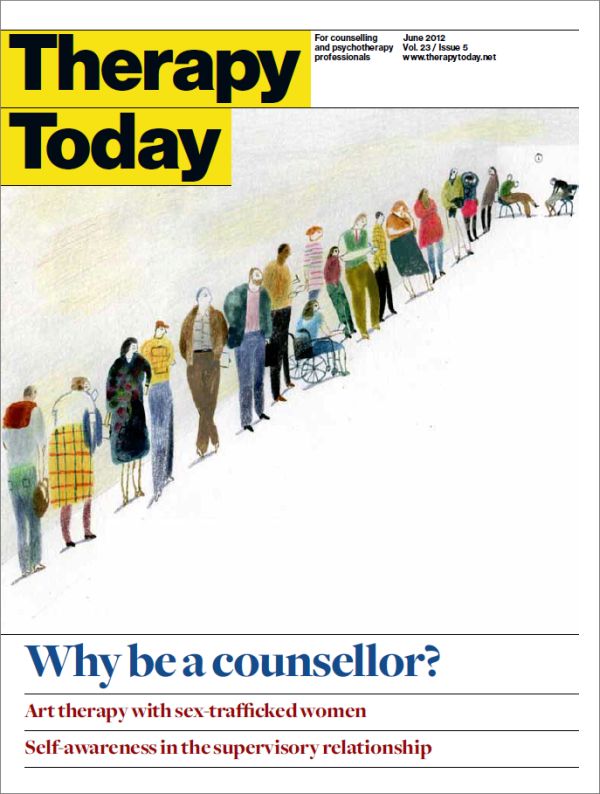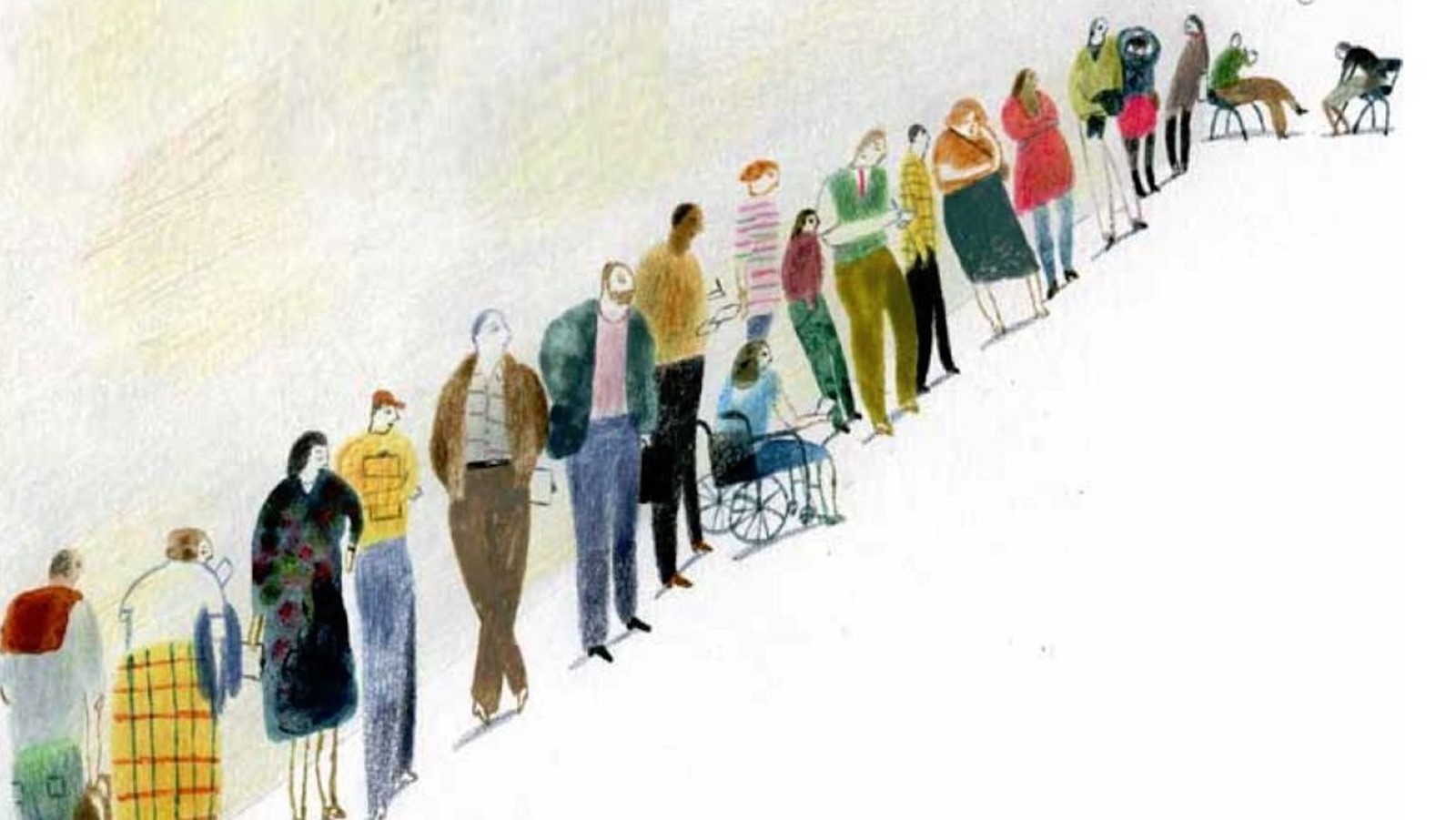In this issue
Features
Who wants to be a counsellor?
Nicola Banning asks fellow counsellors and trainees why they chose the profession and assesses the current job market.
Working with adults with ADHD
Clients with ADHD present particular challenges in therapy. Sabina Dosani summarises how it can affect the therapeutic relationship and how the therapist can help.
Art therapy with trafficked women
Lydia Atira Tan describes how art therapy has helped sex-trafficked women in Cambodia articulate the trauma of their experiences and look forward to a new life.
Supervisor self-awareness
Self-awareness is an essential quality in a supervisor. Máire O’Donnell and Kate Vallance explore its role in the supervision relationship.
Regulars
News feature
Making time to talk
No matter how good their medical care, people with long-term physical illnesses also need time and space to talk. Catherine Jackson reports.
Talking point
Sue Gerhardt: What a waste
In the client's chair
Caitin Wishart: What am I getting out of this?
In training
Marc Brammer: Searching for myself
In practice
Rachel Freeth: Psychiatry meets counselling
Questionnaire
Phillip Hodson
Day in the life
Carina Eriksen: No fears of flying
Dilemmas
Just the three of us
Letters
BACP
From the chair
Amanda Hawkins: Small world, big questions

Articles from this issue are not yet available online. Members and subscribers can download the pdf from the Therapy Today archive.
Editorial
As long as I’ve been editing this journal we’ve been receiving letters about the amount of people training to be counsellors (and the lack of jobs). The numbers have certainly swelled in recent years. In 2003 The Sunday Times reported that Britain ‘now has more counsellors than soldiers’. And last year I read that counselling had made it into a list for the top 10 most popular careers predicted for 2011. Yet the ratio of CPD adverts to job adverts in these pages has consistently been about 10:1.
There is clearly a lack of paid work or at least paid work that gets advertised. When I did my own training I felt uneasy when I realised that the training organisation were not making this situation clear to prospective students.
But even in these harsh economic times, thousands of people every year are still choosing to embark on counselling training involving significant expenditure. Why? Nicola Banning asks this question in ‘Who wants to be a counsellor?’ The profile of the counselling trainee, she finds, has changed: in the past, trainees typically came from social work, teaching and nursing backgrounds; now they come from just about every sector. For many people, their inspiration to train comes from their own experience of counselling; while others may be drawn to train as part of their own journeys of self-exploration. One interviewee worked in the civil service before training as a counsellor. She describes the lack of meaning to her work and having to email people who were sitting next door to her. She says she was ‘withering at a soul level’. I’m sure many of us can relate to that.
Our news feature focuses on the use of psychological therapies for long-term physical illnesses. People with diabetes, for example, may not be managing their condition, not through lack of knowledge but because they may be struggling with depression which is a barrier to their self-care. As one interviewee says, if you’re struggling with low mood it can be hard to feel motivated to exercise, cut out smoking and alcohol and eat healthy foods. The ‘No Health without Mental Health’
message is finally getting through.
Sarah Browne
Editor
